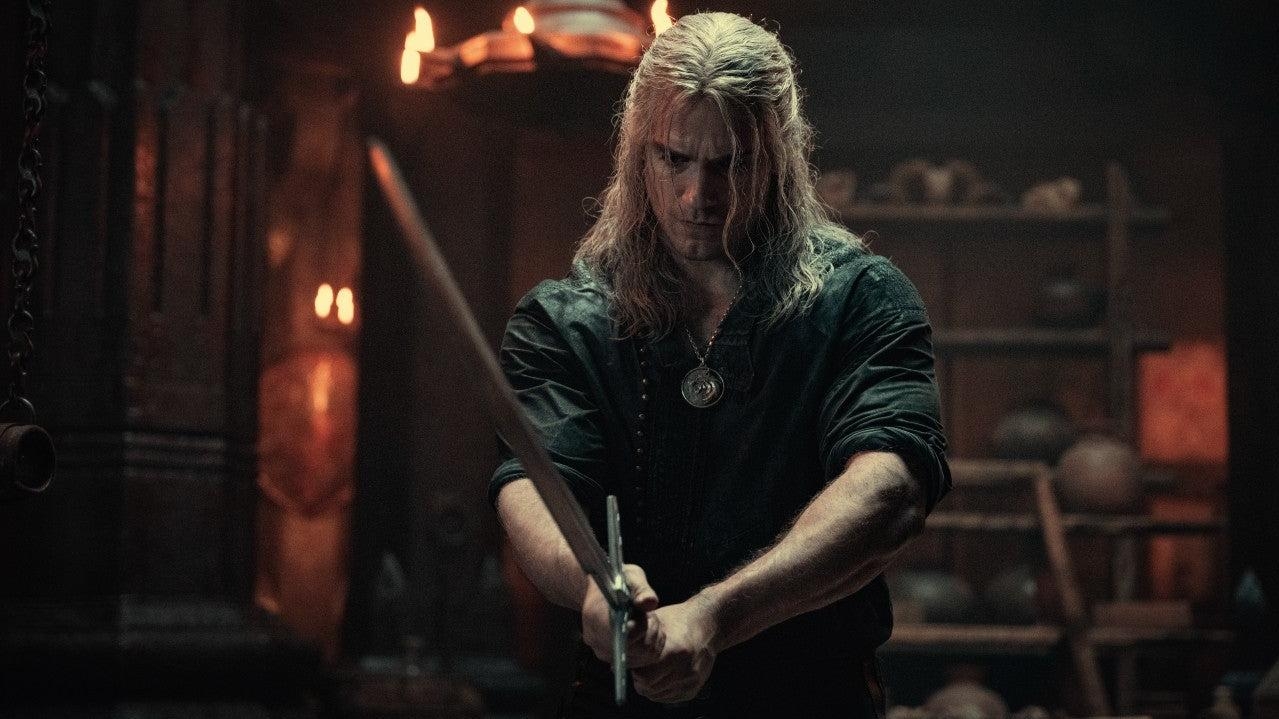The Witcher finds power and purpose in a confident second season
Geralt’s a dad in season two of The Witcher, and both he and Henry Cavill have never been better.


Leading up to its release in winter 2019, Netflix’s adaptation of Andrzej Sapkowski’s The Witcher series was generating an all-too recognizable brand of hype. Peppered with wanton violence, moral murk, pretty people getting naked (and oftentimes getting busy), the arrival of The Witcher felt more like the coming of Game Of Thrones 2.0: a big budget, trend-chasing show that seemed engineered to scandalize its viewers into gossiping about the series until it became streaming’s next bawdy hit.
But Lauren Schmidt Hissrich’s vision for Geralt of Rivia’s slate-gray world of monsters and betrayals had a rowdy spark and daffy energy to it that narrowly transcended Netflix’s Thrones-seeking ambitions, and gifted viewers with a rollicking ear-worm, to boot. Season two of The Witcher, which premieres December 17 on Netflix, is more of a wintry, somber affair than what’s come before. It’s sullen in some respects, more determined in its mission now that its cast has grown more comfortable in their roles and its dark prophecy is finally (finally) beginning to take shape. Even the frisky bard Jaskier (Joey Batey) is singing a more maudlin tune this go-around.
Yet The Witcher’s second season is vastly more confident about leaning into the high fantasy and higher stakes of Sapkowski’s lore, opting to let characters such as the wizened witcher Vesemir (Kim Bodnia) speak of forgotten histories instead of taking safer, more randy detours. (Expect the people of the continent to be more likely to keep their costumes on than tear them off.) Encouraging still is its stronger focus on maintaining a sense of narrative momentum (gone is the needlessly confusing time-hopping format of season one), at last bestowing upon The Witcher a sense of direction and purpose.
That’s not to say there isn’t heaps of backstory and world-building to still keep track of, and it saddles itself with an ever-expanding cast of characters who have an alarming tendency to get lost in the shuffle of the first six episodes that were made available for review. But when it zeroes in on its central trio—Henry Cavill’s Geralt of Rivia, Freya Allan’s Princess Cirilla, and Anya Chalotra’s Yennefer of Vengerberg—and when it lets Geralt’s sword sing against the terrible roars of some fell beast, that’s when The Witcher operates at the heights of its powers.
It’s a shame, then, that Yenn is still the odd mage out. Ciri has at last wandered out of her own meandering season one cul-de-sac and entered Geralt’s protection, and her time spent learning how to live under the shadow of prophecy against a foreboding snowy backdrop (while throwing herself at mastering the perilous witcher tradition) features some of the show’s strongest moments. But The Witcher is still casting a wider net than it needs to, expanding on the less interesting courtly intrigues of the cruel Nilfgaardian Empire and introducing the beleaguered elven haven of Xin’trea, a cacophony of subterfuge, trickery, and banal narrative positioning that keeps Yenn deep in the season’s many bursts of action, but far, far away from the warm hearth of the season’s core found-family unit.
The second season of The Witcher burns brightest when set in Kaer Morhen, a chilly, hollowed-out ruin that serves as the final outpost for the world’s last line of witchers and a mostly serene environment where Geralt and Ciri can settle into their roles as a surrogate father-daughter unit. There dwells Vesemir, who darkly worries over what looks to be the final years for his witcher brethren just as a strange wave of hideous monsters begin to stalk Kaer Morhen’s perimeter. Joining Vesemir is Triss Merigold (Anna Shaffer), who uses her chaos magic to find a solution to the witcher’s collective fate and shares a healthy, supportive relationship with Ciri as she attempts to strike a balance between her regal upbringing and her witcherly ambitions. Triss also manages to toss a loaded glance at Geralt every once in a while, just to see if there’s still a spark of romance hidden behind the White Wolf’s chiseled features.
Where Triss’ advances might have been answered with a spirited roll in the hay back in season one, this season’s broodier atmosphere kinda dampens the mood. Geralt’s legendary libido does take a backseat to his paternal responsibilities to Ciri, it’s true—but what’s really squashing the series’ former zeal for onscreen trysting is, apparently, a broken heart. Early on, Geralt is under the belief that his beloved Yenn sacrificed herself in the Battle of Sodden Hill. The Witcher is certainly better served when it keeps its plot mechanics in motion, especially since it’s operating in the shadow of an apocalyptic threat that will remain unnamed to avoid spoilers, but the energy is noticeably more sleepy without the show’s periodic displays of raunch.
Yenn is alive, though worse for wear following the fireworks display at Sodden in the season-one finale. The show may be less tantalizing without Chalotra’s tangible chemistry with Cavill, but at least she gets in some good moments with the jaded Jaskier in-between the season’s long stretches of elven-human strife. (Chalotra even gets to flex some surprisingly formidable comedic muscles during one particularly rousing sequence.) The Nilfgaard/Xin’trea stuff is clearly vital to where this season is going, and it boasts a few compelling performances, with Adjoa Andoh as Mother Nenneke and Simon Callow & Liz Carr’s investigative archivists being key stand-outs. But it remains clear that regal conniving and revolutionary plotting still isn’t The Witcher’s strongest suit.
While The Witcher keeps a linear narrative and mostly sequesters its lead monster-slayer to a mandatory winter vacation in Kaer Morhen, the first episode of this new season, titled “A Grain of Truth,” features the stronger procedural aspects of season one. Set in a forbidden manse which houses a friendly beast-man, Geralt and Ciri fall into the first of the season’s far too few monster hunts. There is rich character work for all parties involved, the beastly skirmishes are appropriately vicious (they set a promisingly violent standard for the future fiends that lurk in the future episodes), and it serves as a nice epilogue of sorts for season one while building towards its own hopefully stirring finale.
At the center of things, as ever, is Henry Cavill, whose performance as Geralt is more seasoned, more assured, and less indebted to voice actor Doug Cockle (who portrayed Gerald in CD Projekt Red’s Witcher series) than ever before. Cavill’s physicality has long been a primary highlight of the series, and while he has plenty of opportunities to swing his sword and blast foes with a dose of Aard, he spends just as much time grounding the series with a newfound paternal energy. It’s a good dramatic fit for the actor, who endured a severe injury during the filming of this season that nearly put an end to his career as a marquee action star. His dedication to the role reflects his character’s dedication to his new charge, which is a charming element that only elevates the series further.
In season two, Geralt carefully measures the frightful portents surrounding Ciri’s growing power, his brow wrinkled with worry. “I want to be a great fighter,” she tells him. “And not just against sacks of straw.” It’s here where things slow all the way down and Cavill provides The Witcher with something it had been woefully missing: an honest, tender heart. But the Butcher of Blaviken still carries his trademark cynicism: “I have known many who wanted to be great fighters in my time. Do you know where they are now? In cemeteries.” Geralt’s a dad in season two of The Witcher, and both he and Cavill have never been better.